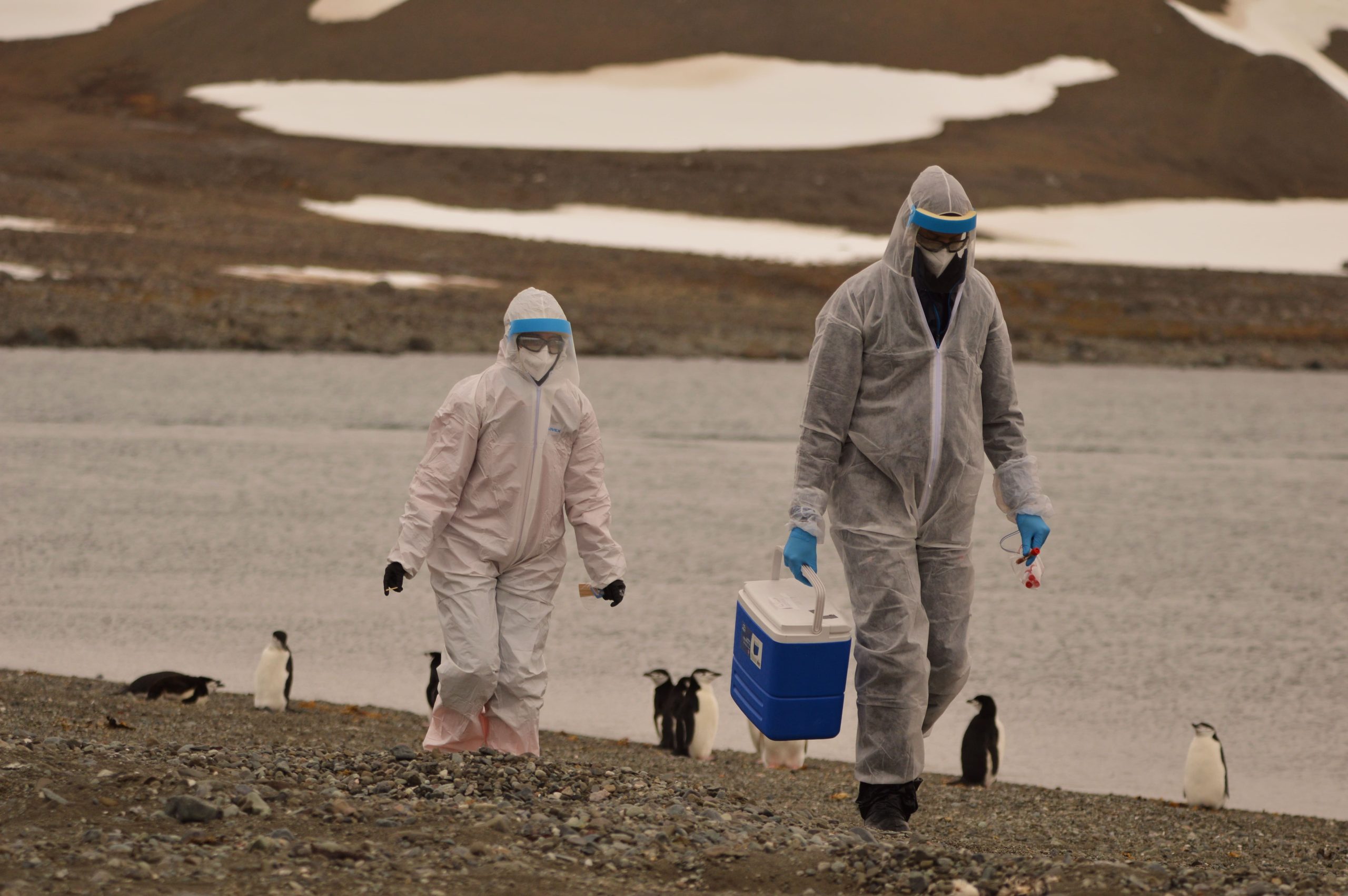Punta Arenas, February 27, 2024 – Researchers at the Severo Ochoa Center for Molecular Biology, part of the Spanish Higher Council for Scientific Research (CSIC), confirmed on Sunday the presence of highly pathogenic avian influenza viruses in dead bird specimens found in Antarctica, an unprecedented step. discovery. The discovery raises new questions about the spread of disease in one of the most remote and least explored environments on Earth.
Argentinian scientists discovered the virus in samples from two dead skuas, also known as brown skuas, found near the Antarctic base of Primavera on the Antarctic Peninsula. The samples were transported with utmost care to the Spanish Gabriel de Castilla base on Deception Island, where specific PCR analysis for influenza viruses and H5 subtypes was performed, followed by protease cleavage sequencing, 100% The existence of this pathogen was definitely confirmed.
This is the first time a highly pathogenic avian influenza virus has been confirmed in Antarctica, despite its distance and natural barriers from other continents. Furthermore, as the Spanish researchers mentioned, this discovery could explain the mass die-offs of birds recorded during the Antarctic summer.
Many teams in several countries, including Chile, have been monitoring the presence of the virus in order to provide early warning of its presence, but until this weekend, no team had demonstrated the presence of the virus variant on the Antarctic continent.
Measures taken by Chile
The discovery of avian influenza in Antarctica highlights the importance of active surveillance and a better understanding of avian health in the region. The discovery follows a series of actions in Chile to study the virus and its possible impact on the frozen continent.
Dr. Marcelo González, Director of the Scientific Department of the Chilean Antarctic Institute (INACH), explained that since the first reports of avian influenza in Chile and the Magellanic Islands last year, a prevention program has been implemented and currently All countries are implementing the program. National Operator. In addition, the National Antarctic Science Program has formed a team of experts to plan field operations for this season.
“As the Chilean Antarctic Research Institute, since the avian influenza emergency occurred on the South American continent, and in view of its possible arrival in Antarctica, we have implemented two key measures: first, we established a technical team of researchers and researchers, virus biologists, bird behavior and zoology experts in order to prepare for possible health crises in Antarctica. Secondly, we established behavioral protocols and implemented a real-time PCR analysis platform to detect positive cases in the Antarctic region. To date, Chile has Surveillance conducted in the O’Higgins Base area and on the Fields Peninsula (King George Island) has not reported positive cases. We have also received samples from the U.S. Polar Program, which have been processed in Chile. The laboratories at our scientific base have also given There was a negative result,” Gonzalez said.
During the LX Antarctic scientific expedition (ECA 60) organized by INACH, a Chilean research team from the University of Chile, the Pontifical Catholic University of Chile, and the Milenio BASE Institute has been conducting a detailed analysis of the virus in the field and assessing its impact on bird and other biological populations in the Antarctic region. possible impact. These investigations are being conducted under strict safety and biosecurity protocols to prevent any risk of the spread of the virus.
The findings are expected to provide important information for developing disease management and prevention strategies in Antarctica and for strengthening response capabilities to such events in the future. So far, only skuas have reported positive cases, which is why it is key to continue monitoring other bird and marine mammal populations. The spread of penguin and sea lion colonies could cause an unprecedented ecological disaster in Antarctica.
INACH is a technical organization of the Ministry of Foreign Affairs with full autonomy in all matters related to the nature of Antarctic science, technology and communication. INACH adheres to national Antarctic policy, encourages the development of excellent research, participates effectively in the Antarctic Treaty System and related forums, strengthens the Magellanic Islands as a gateway to the White Continent, and carries out actions to disseminate Antarctic knowledge to citizens. INACH organizes the National Antarctic Science Program (PROCIEN).

